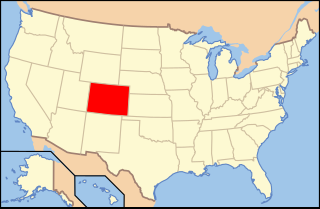Related Research Articles
This is a list of notable events in the history of LGBT rights that took place in the year 1975.
This article contains a timeline of significant events regarding same-sex marriage and legal recognition of same-sex couples worldwide. It begins with the history of same-sex unions during ancient times, which consisted of unions ranging from informal and temporary relationships to highly ritualized unions, and continues to modern-day state-recognized same-sex marriage. Events concerning same-sex marriages becoming legal in a country or in a country's state are listed in bold.

This article addresses the history of lesbianism in the United States. Unless otherwise noted, the members of same-sex female couples discussed here are not known to be lesbian, but they are mentioned as part of discussing the practice of lesbianism—that is, same-sex female sexual and romantic behavior.
Same-sex marriage has been legal in Florida since January 6, 2015, as a result of a ruling in Brenner v. Scott from the U.S. District Court for the Northern District of Florida. The court ruled the state's same-sex marriage ban unconstitutional on August 21, 2014. The order was stayed temporarily. State attempts at extending the stay failed, with the U.S. Supreme Court denying further extension on December 19, 2014. In addition, a state court ruling in Pareto v. Ruvin allowed same-sex couples to obtain marriage licenses in Miami-Dade County on the afternoon of January 5, 2015. In another state case challenging the state's denial of marriage rights to same-sex couples, a Monroe County court in Huntsman v. Heavilin stayed enforcement of its decision pending appeal and the stay expired on January 6, 2015. Florida was the 35th U.S. state to legalize same-sex marriage.
Same-sex marriage has been legally recognized in Colorado since October 7, 2014. Colorado's state constitutional ban on same-sex marriage was struck down in state district court on July 9, 2014, and by the U.S. District Court for the District of Colorado on July 23, 2014. The Tenth Circuit Court of Appeals had already made similar rulings with respect to such bans in Utah on June 25 and Oklahoma on July 18, which are binding precedents on courts in Colorado. On October 6, 2014, the U.S. Supreme Court declined to hear the Tenth Circuit cases, and the Tenth Circuit lifted its stay. On October 7, the Colorado Supreme Court and the Tenth Circuit cleared the way for same-sex marriages to begin in Colorado.
Same-sex marriage has been legal in South Carolina since a federal court order took effect on November 20, 2014. Another court ruling on November 18 had ordered the state to recognize same-sex marriages from other jurisdictions. Following the 2014 ruling of the Fourth Circuit Court of Appeals in Bostic v. Schaefer, which found Virginia's ban on same-sex marriage unconstitutional and set precedent on every state in the circuit, one judge accepted marriage license applications from same-sex couples until the South Carolina Supreme Court, in response to a request by the Attorney General, ordered him to stop. A federal district court ruled South Carolina's ban on same-sex marriage unconstitutional on November 12, with implementation of that decision stayed until noon on November 20. The first same-sex wedding ceremony was held on November 19.

Lesbian, gay, bisexual, transgender, and queer (LGBTQ) people in the U.S. state of Colorado enjoy the same rights as non-LGBTQ people. Same-sex sexual activity has been legal in Colorado since 1972. Same-sex marriage has been recognized since October 2014, and the state enacted civil unions in 2013, which provide some of the rights and benefits of marriage. State law also prohibits discrimination on account of sexual orientation and gender identity in employment, housing and public accommodations and the use of conversion therapy on minors. In July 2020, Colorado became the 11th U.S. state to abolish the gay panic defense.

Adams v. Howerton, 673 F.2d 1036, cert. denied, 458 U.S. 1111 (1982) is a decision from the United States Court of Appeals for the Ninth Circuit that held that the term "spouse" refers to an opposite-sex partner for the purposes of immigration law and that this definition met the standard at the time for rational basis review. It was the first U.S. lawsuit to seek recognition of a same-sex marriage by the federal government.
This article contains a timeline of significant events regarding same-sex marriage in the United States. On June 26, 2015, the landmark US Supreme Court decision in Obergefell v. Hodges effectively ended restrictions on same-sex marriage in the United States.

This article addresses the history of gay men in the United States. Unless otherwise noted, the members of same-sex male couples discussed here are not known to be gay, but they are mentioned as part of discussing the practice of male homosexuality—that is, same-sex male sexual and romantic behavior.
Richard Frank Adams was a Filipino-American gay rights activist. After his 1975 same-sex marriage was declared invalid for the purposes of granting his husband permanent residency, Adams filed the federal lawsuit Adams v. Howerton. This was the first lawsuit in America to seek recognition of a same-sex marriage by the federal government.
Same-sex marriage has been legal in Texas since the U.S. Supreme Court's ruling in Obergefell v. Hodges on June 26, 2015. Previously, the U.S. state of Texas had banned same-sex marriage both by statute since 1973 and in its State Constitution since 2005. On February 26, 2014, Judge Orlando Luis Garcia of the U.S. District Court for the Western District of Texas found that Texas's ban on same-sex marriages was unconstitutional. On April 22, 2014, a state court came to the same conclusion. Both cases were appealed. The district court's decision was appealed to the Fifth Circuit Court of Appeals, but before that court could issue a ruling, the U.S. Supreme Court struck down all same-sex marriage bans in the United States in Obergefell on June 26, 2015. Within a few months of the court ruling, all counties had started issuing marriage licenses to same-sex couples, except for Irion County, which announced in 2020 that it would begin issuing licenses to same-sex couples, making it the last county in the United States to comply with the ruling.
This is a list of notable events in the history of LGBTQ rights that took place in the year 2014.
Same-sex marriage has been legal in Missouri since the U.S. Supreme Court's landmark ruling in Obergefell v. Hodges, which struck down state bans on marriages between two people of the same sex on June 26, 2015. Prior to the court ruling, the state recognized same-sex marriages from other jurisdictions pursuant to a state court ruling in October 2014, and certain jurisdictions of the state performed same-sex marriages despite a statewide ban.

Brinkman v. Long, and its companion case, McDaniel-Miccio v. Hickenlooper, are the lead state court cases on same-sex marriage in Colorado. Here, a Colorado district court found on July 9, 2014, that the state's same-sex marriage ban violates same-sex couples' guarantees of equal protection and due process under the Fourteenth Amendment to the U.S. Constitution. Brinkman and McDaniel-Miccio have been appealed to the Colorado Supreme Court, where they were dismissed following the dismissal of similar petitions by the U.S. Supreme Court on October 6, 2014.

Burns v. Hickenlooper is a lawsuit filed on July 1, 2014, in federal district court in Colorado, challenging that state's denial of marriage rights to same-sex couples. The plaintiffs' complaint alleged that the defendants have violated the Fourteenth Amendment by denying plaintiffs the fundamental right of marriage. The defendants agreed with the substance of the plaintiffs' case, but asked the district court to stay implementation of any order requiring Colorado to alter enforcement of its ban pending the outcome of other litigation. After the district court declined to grant more than a one-month stay on July 23, the state's governor and attorney general appealed and won a stay from the Tenth Circuit Court of Appeals on August 21. Following U.S. Supreme Court action in other cases, on October 8 they asked the Tenth Circuit to dismiss their appeal and lift the stay, which would effectively legalize same-sex marriage in Colorado.

Colorado ex rel. Suthers v. Hall was a Colorado District Court case dealing with the use of civil disobedience, specifically by issuing same-sex marriage licenses to couples despite the stay of court rulings supporting them. The Court found that a county clerk was indeed allowed to engage in this practice did not meet its burden to stay the clerk from doing so. The Colorado Court of Appeals agreed; the Colorado Supreme Court has stayed the clerk's actions while it waits to hear the case after October 20, 2014.
In the United States, the history of same-sex marriage dates from the early 1940s, when the first lawsuits seeking legal recognition of same-sex relationships brought the question of civil marriage rights and benefits for same-sex couples to public attention though they proved unsuccessful. However marriage wasn't a request for the LGBTQ movement until the Second National March on Washington for Lesbian and Gay Rights in Washington (1987). The subject became increasingly prominent in U.S. politics following the 1993 Hawaii Supreme Court decision in Baehr v. Miike that suggested the possibility that the state's prohibition might be unconstitutional. That decision was met by actions at both the federal and state level to restrict marriage to male-female couples, notably the enactment at the federal level of the Defense of Marriage Act.

Clela Ann Rorex was an American county clerk who issued the first same-sex marriage license in the United States. Serving as the Boulder County Clerk, Rorex issued a marriage license to a gay couple in 1975 after receiving approval from the District Attorney.

The Boulder County Courthouse is a historic building on Pearl Street in Boulder, Colorado, built in 1933. The courthouse is a contributing property to the Downtown Boulder Historic District, listed on the National Register of Historic Places in 1980. In 2018, additional information about the building was added to the documentation of the district. The building was designated a National Historic Landmark in 2024 for its role as the first place in the nation where same-sex marriage licenses were issued.
References
- 1 2 3 4 "Roots of Hillary Hall's marriage equity stance trace back to youth in Boulder". Boulder Daily Camera. 2014-07-03. Retrieved 2020-06-30.
- ↑ "Hillary Hall: Boulder County clerk and recorder". Colorado Hometown Weekly. 2014-10-16. Retrieved 2020-06-30.
- ↑ "Opinion: Paul Tiger-Hillary Hall - a fond farewell". LongmontLeader.com. Retrieved 2020-06-30.
- ↑ Srikrishan, Maya (2014-07-10). "2 Colorado counties join Boulder in issuing same-sex marriage licenses". Los Angeles Times. Retrieved 2020-06-30.
- ↑ "Colorado Supreme Court Orders Boulder Clerk To Stop Issuing Same-Sex Marriage Licenses". BuzzFeed News. Retrieved 2020-06-30.
- ↑ Wallis, Keith Coffman and Daniel. "Colorado judge backs county clerk over gay marriage licenses". chicagotribune.com. Retrieved 2020-06-30.
- ↑ "Emboldened by Utah ruling, Colorado clerk issues gay marriage licenses". Reuters. 2014-06-26. Archived from the original on July 2, 2020. Retrieved 2020-06-30.
- ↑ "Boulder gay marriage licenses halted in Colo. court judgement". Christian Science Monitor. 2014-07-30. ISSN 0882-7729 . Retrieved 2020-06-30.
- 1 2 "AG Suthers: Supreme Court decision clears way for gay marriage in Colorado". www.bizjournals.com. Retrieved 2020-06-30.
- ↑ "Boulder ruling opens doors for same-sex marriage licenses". The Denver Post. 2014-07-10. Retrieved 2020-06-30.
- ↑ "Same-sex marriage in Colorado: 11 answers to commonly asked questions". The Denver Post. 2014-10-18. Retrieved 2020-06-30.
- ↑ Harris, Kyle (2014-08-13). "Clela Rorex Planted the Flag for Same-Sex Marriage in Boulder Forty Years Ago". Westword. Retrieved 2020-06-30.
- ↑ Browning, Bil (2019-01-07). "Boulder Colorado courthouse added to national register of historic places as gay landmark". LGBTQ Nation. Retrieved 2020-06-30.
- ↑ "Voter Fraud in Boulder". National Review. 2014-11-03. Retrieved 2020-06-30.